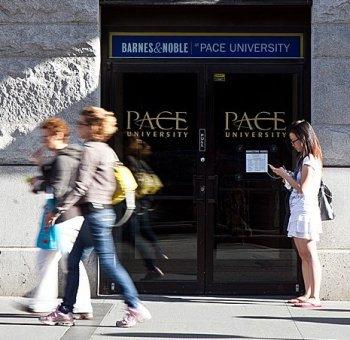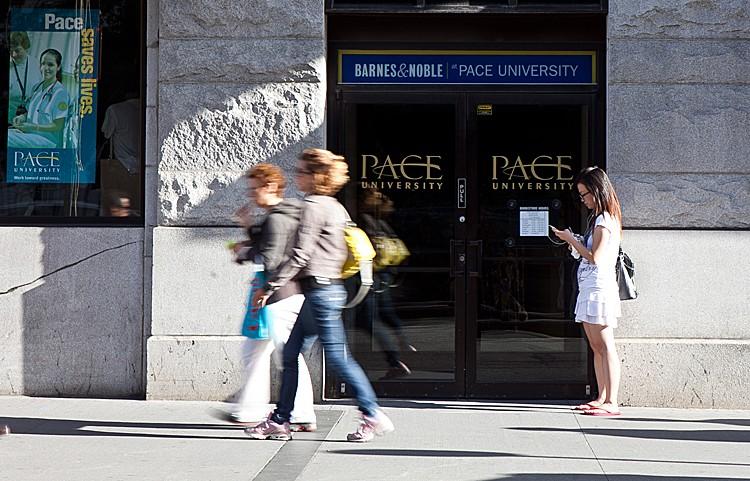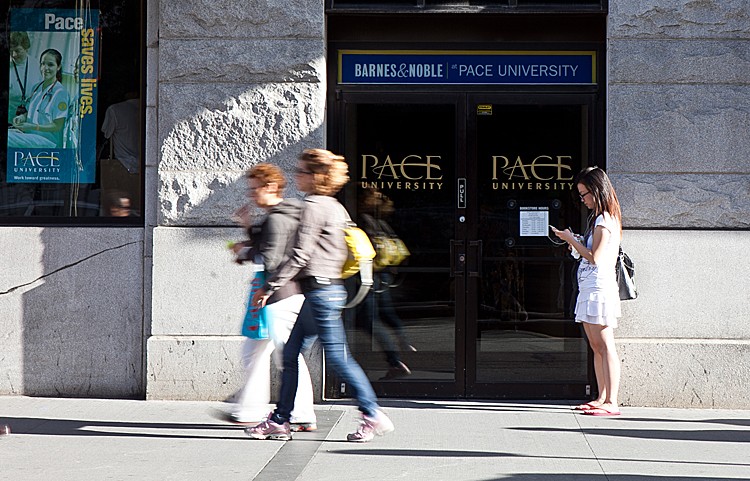At US Universities, Confucius Institutes Import Discrimination
Bright young graduates in China are being recruited to come teach in the United States as volunteers. Ideally they should have excellent Chinese language skills, a friendly manner, be able to sing, play an instrument, and have good grades. Oh, and they’re not allowed to believe in Falun Gong.

People walk past the Pace University in Manhattan. The associate-director at the Confucius Institute at Pace University said the Chinese regime has a 'right to ban' Falun Gong practitioners from volunteering at the Institute. AMAL CHEN/THE EPOCH TIMES
|Updated:






